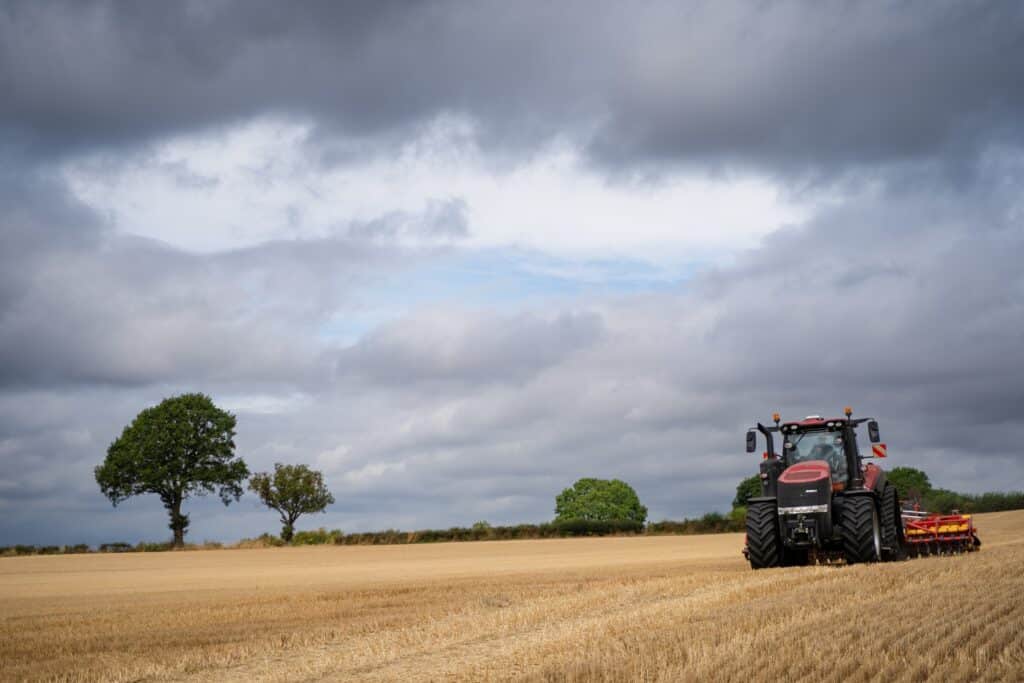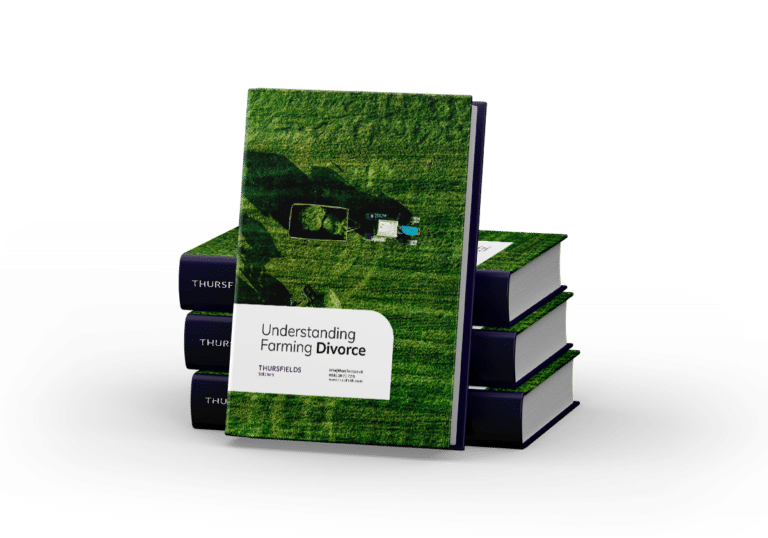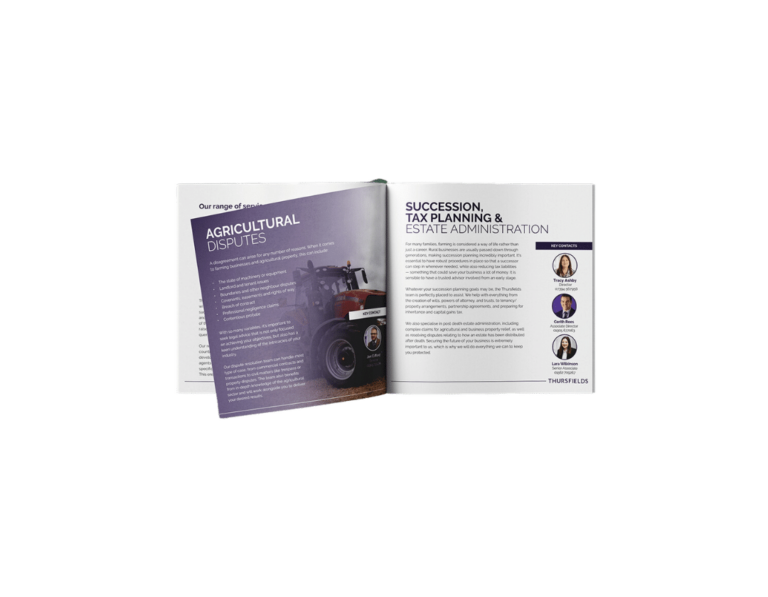Everything You Need to Know About Farm Divorce Settlements
Divorce can be a challenging time for all involved. There is often a lot to unravel, especially when businesses are concerned, while emotions will sometimes run high. Negotiating a farm divorce settlement is especially complex, as there are a host of circumstances to navigate through which are completely unique to rural enterprises.
Farming businesses have often been held in the same family for generations, so there will naturally be concerns about preserving its legacy so it can continue to be passed down as a lasting partnership for years to come. Therefore, if you’re in the process of or thinking about divorcing, it’s important to take specialist legal advice at your earliest opportunity.
But what makes farm divorce settlements so complex, and what needs to be considered during negotiations? Our article explains it all.
What Makes Farming Divorces so Complicated?
Much like regular divorce cases, there is a need to ensure that any settlement reached is as fair as possible for both parties. With farming divorces, however, this does not always mean an equal division of assets. This is because businesses of this nature can merit special consideration for reasons such as:
- Assets which are inherited are not usually subject to the same sharing principle as standard divorces
- Farms are often owned by the wider family, meaning divorce courts are usually reluctant to affect the livelihoods of third parties
- Courts can use their discretion to disregard the need for equality in favour of protecting inherited assets
One of the main complexities with farm divorce settlements is the fact that they don’t tend to follow a regular business structure. They are often set up either as partnerships or through a limited company with several shareholders. A rural enterprise may also be the subject of a last will and testament or be tied up in a trust. As a result, it can be extremely difficult to identify who owns what and whether the company can be divided.
The fact that a farm has been in the same family for generations means there is also much more of an emotional connection to the company than other businesses may experience. Several members of the family may be involved, so the impact of a divorce is likely to affect many more people than just the separating couple. All of this makes it imperative to seek legal advice from solicitors who fully understand your situation and can offer you the support you need.
Liquidity is also a factor, as many of a farm’s assets could be tied up and difficult to realise. Finally, the farmhouse will usually double as both the family home and the main base of the business. Therefore, it is common for the house to remain in the ownership of the farming partner if the company is to continue.

Divorce and Farm Assets: How Does it Work?
Farm assets can often hold significant value. The valuation and settlement can be quite difficult considering many of these items will have been inherited and, as such, do not automatically qualify as matrimonial assets. However, the likelihood is that some of the assets will have been intermingled during the course of the marriage.
If the situation arises that a farm divorce settlement cannot satisfy the needs of both parties through the division of matrimonial assets alone, the business may need to be valued and divided. The farming party may therefore need to provide evidence that the company or land has not been intermingled if they want to keep everything ring-fenced.
How to Protect a Farm During Divorce
There are a number of ways farming assets can be protected during divorce, however prior planning and careful consideration are crucial to ensuring that absolutely everything is taken care of. The different methods include:
– Partnership Arrangements
Entering into a partnership agreement is one of the most common ways to structure a rural business, thanks to their relative flexibility and simplicity. They can be particularly useful when negotiating farm divorce settlements as they lay out in writing exactly which assets belong to the company and what items belong to the individual partners.
Setting up your business this way ensures a clear distinction between personal and company assets, thereby making the division of farm assets in divorce more straightforward and protecting valuable items which the firm needs to operate.
– Trusts
Another way of protecting farm assets from divorce is by using a family or discretionary trust. The trust would then technically own assets such as the business, farmhouse, and investments. Because of this, the assets should then be ring-fenced and safe from the divorce proceedings.
Trusts are not only a useful way of safeguarding assets from divorce, but can also be used to reduce tax liabilities resulting from business income. As such, they should be considered as part of a comprehensive strategy to pass on assets to future generations and protect family wealth.
It’s worth pointing out that a trust should ideally not be considered when a marriage is going through difficulties and divorce is a possibility. This is because a court will likely view that the trust was deliberately set up to avoid the division of assets and could cause problems further down the line.
– Nuptial Agreements

Nuptial agreements (both prenuptial and postnuptial) can also be used to protect farm assets from divorce. They should reduce the need for lengthy hearings about the division of assets and enable the courts to have a clear picture of how the separating couple planned to divide what they own.
Prenuptial agreements take place before a couple enters into marriage, with the aim being to clearly set out what should happen if things break down. A farmer should find these particularly useful as they can be a great step to ensuring the company’s assets will be safe.
A prenuptial must be entered into freely and there are certain criteria which need to be met before they are approved. For this reason, it’s essential to seek advice from a specialist agricultural solicitor as soon as possible.
A postnuptial agreement is made during the course of the marriage. They are often used when the relationship is on the verge of breaking down so their assets can be protected when the divorce happens.
Although nuptial agreements aren’t currently legally binding, courts are paying more and more attention to them, meaning they should be taken into consideration when dealing with farm divorce settlements.
What Goes into a Farm Divorce Settlement?
Farm divorce settlements are usually reached following the conclusion of several key steps. These include:
– Valuing the Farm
While a rural business will typically be valued in the same fashion as those in other industries, agricultural companies will most likely be assessed using the net asset model rather than on a profit earnings basis. This is because a farm will often only produce a modest income, while the main bulk of their value comes from assets such as buildings, livestock, and machinery.
The valuation process is often extremely thorough as there are several different factors which need to be taken into account. Examples of these include the market demand for assets, water rights, zoning restrictions, and conservation easements. Independent appraisers are used to ensure both parties can be confident of having a true valuation ahead of the divorce settlement taking place.
– Determining Income
Getting a clear idea of income is essential for negotiating farm divorce settlements. The business can generate money from a variety of methods, such as the sale of livestock, produce, and subsidies from the government — so it’s important to have a thorough understanding of all the financials if a fair settlement is to be reached.
– Considering Tax Implications
The division of farm assets in divorce can also incur tax obligations. Transferring items such as livestock and machinery could trigger gift or estate taxes, while capital gains tax may apply if agricultural land is sold as part of the settlement. It’s therefore vital to consult with a tax specialist to ensure everything is taken care of.
– Negotiating the Settlement
While some farming divorces will be handled by the courts, couples who decide to split amicably may decide to use mediation services. This can save a lot of time and money in the long run.
Why Work with Specialist Farming Divorce Solicitors?
The agricultural sector is unlike any other, with many unique characteristics to be taken into account. Regular divorce solicitors are unlikely to possess the in-depth experience and knowledge required to ensure a fair division of assets.
Divorce proceedings are often extremely stressful, so you’ll want to be completely confident that your representation has a clear understanding of your circumstances and has the know how needed to achieve your desired result.

A Farming Divorce Service Built Around You
Thursfields’ team of farming divorce lawyers has amassed decades of experience in assisting rural business owners nationwide. We understand the complexities involved in running a farming business. From the desire to keep the company within the family and preserve its future, to navigating intricate ownership structures, our in-depth knowledge of the industry has often been in arranging fair settlements for both parties. Our solicitors have acted for small firms, large corporations, and everything in between — so no matter your circumstances you can be confident in our ability to assist.
When going through something as impactful as a divorce, you need to be completely certain you’re receiving legal advice from a company that understands your unique circumstances. Thanks to our years of experience, you can be confident you’re in safe hands with us.
As a full service law firm, we are able to take care of everything for you. Not only can we handle your farm divorce settlement, but we can also look after trusts and tax implications and help with mediation. Should the business need to be sold, you can rely on our corporate and commercial team for support — while our employment department can look after obligations such as TUPE. We have everything you could possibly require under one roof.
For more information about how our specialist solicitors can help, get in touch with our team today.
Get In Touch
With Us
Need expert legal advice? Our solicitors are here to help. Get in touch today.




